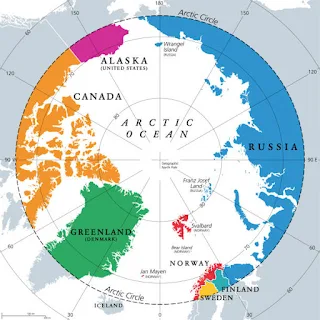Climate change is transforming the Arctic into a critical geopolitical hotspot, with significant implications for regional cooperation and security. The ongoing war in Ukraine has further complicated the situation, with Russia's actions having far-reaching consequences for the Arctic region.
As Future global leaders, it is essential to understand the intricacies of this complex issue and its impact on the Arctic climate. In this article, we will delve into the effects of Russia's war on the Arctic, exploring the geopolitical tensions, environmental concerns, and regional cooperation challenges that arise from this conflict.
The Arctic: A Region of Strategic Importance
The Arctic region is rich in natural resources, including oil, gas, and minerals. The melting of Arctic ice due to climate change has opened up new shipping routes, making the region a critical hub for international trade. The Arctic is also home to several indigenous communities, whose livelihoods and cultures are deeply connected to the region's unique environment.
However, the Arctic's strategic importance has also made it a focal point for geopolitical tensions. Russia, in particular, has been actively expanding its military presence in the region, with several military bases and equipment deployments.
The Impact of Russia's War on the Arctic
Russia's war in Ukraine has significant implications for the Arctic region. The conflict has led to increased military activity in the Arctic, with Russia conducting large-scale military exercises and deploying advanced military equipment.This increased military activity has raised concerns about the potential for conflict in the Arctic. The region's unique environment, with its harsh weather conditions and limited infrastructure, makes it a challenging place to conduct military operations.
Moreover, the conflict in Ukraine has also led to increased tensions between Russia and other Arctic nations, including the United States, Canada, and Norway. These tensions have made it challenging to cooperate on regional issues, such as climate change, search and rescue operations, and environmental protection.
Environmental Concerns in the Arctic
The Arctic is particularly vulnerable to climate change, with rising temperatures and melting ice having significant impacts on the region's ecosystem. The increased military activity in the Arctic has also raised concerns about the potential for environmental damage.
The Arctic's unique environment is fragile and sensitive to human activity. The region's indigenous communities are particularly vulnerable to the impacts of climate change, with their livelihoods and cultures deeply connected to the region's natural resources.
Regional Cooperation Challenges
The conflict in Ukraine has made it challenging to cooperate on regional issues in the Arctic. The Arctic Council, which brings together Arctic nations to address regional issues, has been impacted by the conflict.
The Arctic Council's work on climate change, search and rescue operations, and environmental protection has been slowed down due to the conflict. The council's ability to address these critical issues has been compromised, with significant implications for the region's ecosystem and indigenous communities.
The impact of Russia's war on the Arctic is a complex issue with significant implications for regional cooperation and security. The conflict has raised concerns about the potential for environmental damage, increased military activity, and decreased cooperation on regional issues.
As global leaders, it is essential to prioritize cooperation and diplomacy in the Arctic. The region's unique environment and indigenous communities require special attention and protection. By working together, we can address the critical issues facing the Arctic and ensure a sustainable and secure future for the region.
Recommendations
1. Prioritize cooperation and diplomacy: Arctic nations must prioritize cooperation and diplomacy to address regional issues, such as climate change, search and rescue operations, and environmental protection.
2. Protect the Arctic environment: The Arctic's unique environment requires special attention and protection. Arctic nations must work together to reduce pollution, protect wildlife habitats, and promote sustainable development.
3. Support indigenous communities: The Arctic's indigenous communities are particularly vulnerable to the impacts of climate change. Arctic nations must work together to support these communities, promote their cultures, and protect their livelihoods.
4. Promote sustainable development: The Arctic region is rich in natural resources. Arctic nations must promote sustainable development practices to ensure that these resources are extracted and managed in a responsible and environmentally friendly manner.
By working together and prioritizing cooperation, diplomacy, and environmental protection, we can ensure a sustainable and secure future for the Arctic region.




